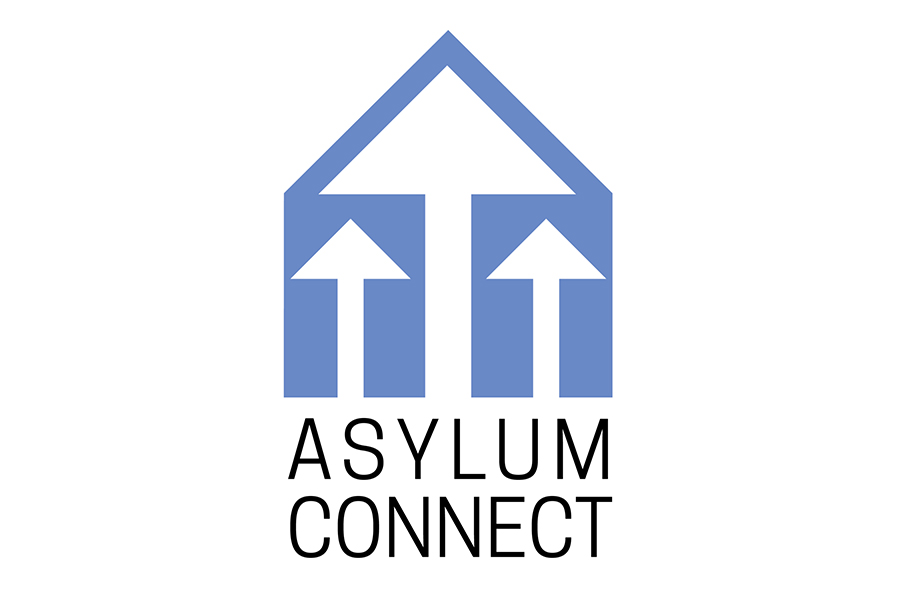When Katie Sgarro started AsylumConnect with cofounder Sy, they were seniors at the University of Pennsylvania, it was September 2016, and Barack Obama was President.
Launched as the first online resource database for LGBTQ people seeking asylum in the United States, AsylumConnect offers a searchable catalog of necessities, from legal help to housing, food and other forms of aid for those legally unable to work in the early stages of the asylum process.
“When Sy and I started AsylumConnect, we were definitely focused solely on the United States. We didn’t really have any plans to internationally expand the database, whether to Mexico or Canada. That really wasn’t on the radar,” said Sgarro.
After the Trump administration took office in January 2017, Sgarro said she saw the needs of LGBTQ asylum seekers change.
“We were receiving more messages from persecuted LGBTQ people that were still trapped in their home countries and were naming Canada as the place they were hoping to seek refuge, not the United States,” she said.
Sgarro believes news coverage of the Trump administration’s xenophobic rhetoric has influenced more LGBTQ-asylum seekers to consider Canada.
Reacting to the shift in need, AsylumConnect added verified LGBTQ-and-asylum-friendly services across Canada. In addition, the company translated legal guides on Canada’s LGBTQ-asylum process.
For Sgarro, responding to policy changes with impactful technology is one of AsylumConnect’s priorities.
The nonprofit launched services in Mexico earlier this year after the Trump administration effectuated the “Migrant Protection Protocols.” Implemented in January, the government action required those seeking asylum in the United States to remain in Mexico until their case received approval, a process that can range from six months to years.
“That [policy] is really problematic for a lot of people, but especially for LGBTQ asylum seekers, because Mexico has been defined as a less-than-LGBTQ-friendly place,” said Sgarro. “So, there’s a concern with LGBTQ asylum seekers: How am I going to survive that [wait] in Mexico?” What’s been dubbed the “Remain in Mexico” policy is another obstacle in a Byzantine system.
To be eligible for asylum, LGBTQ asylum seekers must prove they suffered persecution in their home country for their sexual orientation or gender identity. Because neither trait can be visibly characterized, LGBTQ asylum seekers depend on the decisions of immigration judges, many of whom bring bias to the bench.
“If you think about an immigration judge who is not well-versed in LGBTQ terminology or maybe has some prejudice of what being LGBTQ looks like, that definitely affects people’s cases,” said Sgarro. “That’s something this country needs to get better at in terms of making sure people know LGBTQ identity as an invisible characteristic. Unfortunately, with the Trump administration, I feel like it’s probably getting worse.”
As an immediate response to the “Remain in Mexico” policy, AsylumConnect added a new static resource page on their website, with LGBTQ-friendly resources in Mexican border towns and a translated copy of the “MIgrant Protection Protocols.”
In a memo obtained by the Associated Press in March, the Trump administration mandated that LGBTQ people would be exempt from the “Remain in Mexico” policy. Sgarro said the exemption brings its own dangers.
“The entire premise means having people come out at the border,” said Sgarro.
Sgarro lists the potential risks: “Maybe they’re going to face a less-than-friendly border officer; maybe they’re not going to feel comfortable divulging that information right away; maybe they don’t know they have to in order to actually get that exemption,” said Sgarro.
“There are so many problems with this policy and I think, again, this is an example of a policy that has unfortunately really scared people from coming to the United States,” Sgarro continued. “For LGBTQ asylum seekers, being deported to a dangerous home country is, unfortunately, likely a death sentence.”
Continuing to respond to the needs of LGBTQ asylum seekers, AsylumConnect plans to release their second product, AsylumConnect Community, later this year. The product is a private online forum where LGBTQ asylum seekers can chat with each other and asylees — those who have successfully received asylum — in a safe, moderated space.
Sgarro said, “We feel that by building this online community, we can supplement the information that’s found in our resource catalog and have a more holistic approach.”
For more information, visit asylumconnect.org.

